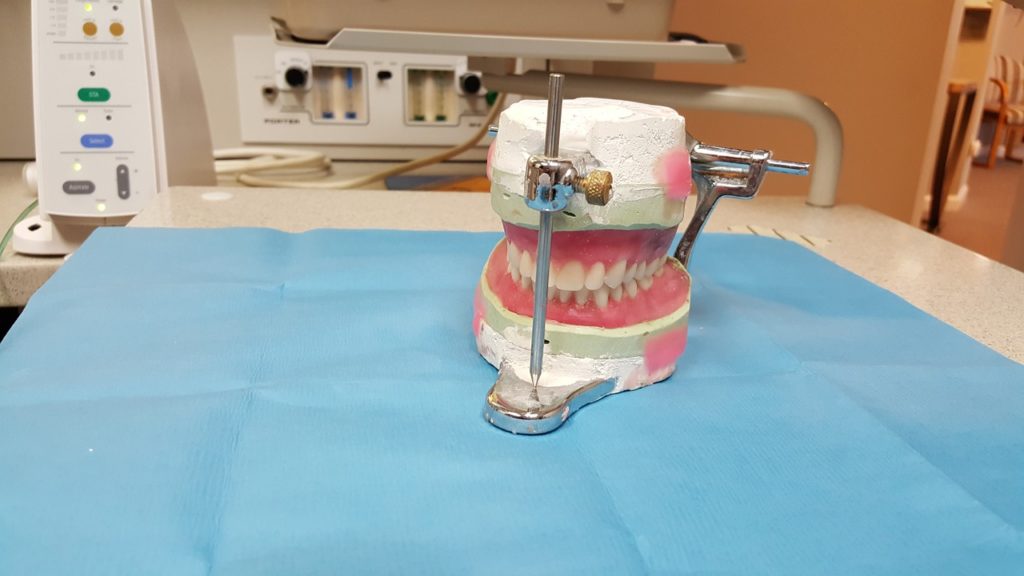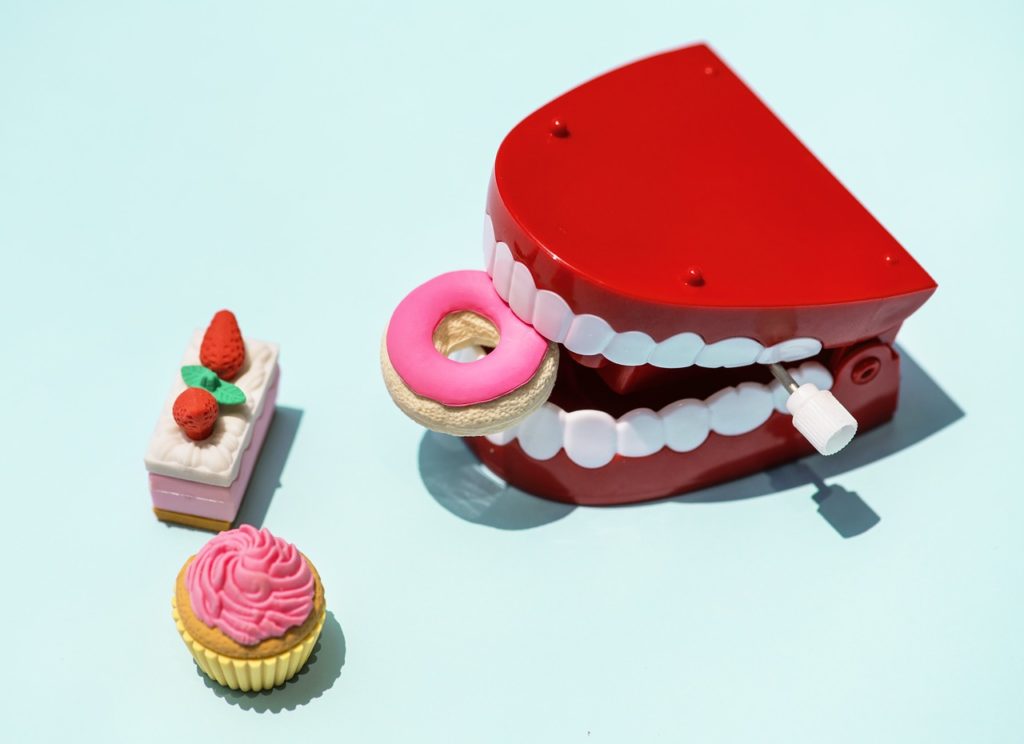
Whether you know someone with dentures, you have them, or you are considering getting dentures, you might have some questions regarding them. The following is an in-depth look at dentures, what they are, how to care for them and also whether they are the right fit for you.
Dentures are artificial teeth and gums that are created by your dentist to replace lost or removed natural teeth. They can be partial or full which means they can replace a few missing teeth or all the teeth on either the upper or lower gum line. No matter the type of dentures you need, they are always custom made to fit into your mouth and blend in with the remaining teeth.
In the past, the artificial teeth part of dentures was made from plastic or porcelain. Modern dentures are made from hard resin which is more fragile than natural teeth and are prone to cracking and easily chipping if not cared for in the right way. Even with the best care, the material used to make dentures wears down faster than natural teeth and requires replacement every five years or so.
The structure that holds the artificial teeth together which looks like the gum is also made from a similar resin material as the artificial teeth. It can also be made from a polymer that is more flexible and one that fits comfortably on the natural gum line.

There are plenty of benefits that come with wearing dentures. Other than improving the appearance of your smile by covering up the missing teeth, dentures also help to keep the structure of the mouth sound by offering support to the cheeks and the lips.
They also make it possible to eat foods that require chewing allowing you to maintain your diet for proper nourishment. Also, if you have any missing teeth which can also cause pain and other dental health issues, dentures can fill in and replace the troublesome teeth with strong, functional and beautiful alternatives.
If the structures surrounding the missing teeth are not strong enough to support bridges and other dental structures or you are missing multiple teeth, partial dentures are the best solution. The dentures are fitted on the part of the gum they will sit on and are fastened to the nearby natural teeth, so they don’t fall out of place. However, the fastening is not permanent. They can be taken out quickly at any time when sleeping or to clean them out.
These are also known as complete dentures and are used to replace all your natural teeth. They can be fitted on your top or bottom gum line and are held in place with an oral adhesive or suction or both. Like the partial dentures, they can be removed easily.
There is a variety of other dentures that are different from the permanent partial and full dentures. These called immediate dentures. These types of dentures are created before the natural teeth have been removed and are used immediately after extraction of the natural teeth in the course of the healing process which can take up to six months. These dentures are easier to fit than permanent dentures to accommodate changes in the mouth caused by the swelling of the gums and jaws as part of the healing process.
Once the healing process is complete, the dentures are removed and disposed of, and your mouth is now ready for permanent dentures.
If you have a few natural teeth left or you find traditional dentures to be uncomfortable, overdentures can be used. They are fitted over the roots of the natural teeth, or they can rest on dental implants as well if you don’t have any natural teeth to fit over. Most people find this type of dentures more comfortable and they are removable as well.
As the name suggests, these are dentures that are anchored by dental implants. A dental implant is a fixture that can be used to replace any number of teeth and is anchored to the jawbone. The implant comprises a metal post which is made of titanium in most cases and a crown that is customized to look like a natural tooth.
Dentures of this type can be attached in different ways but, the amount of care and treatment is the same as that of traditional dentures. They are more commonly fitted on the lower jaw, but most people usually have them on both jaws.
Dentures need to be cleaned daily like regular teeth no matter which type you have fitted. Even though they are artificial, this does not stop plaque, bacteria, and tartar building upon them which can harm the remaining natural teeth and gums.
To clean the dentures, remove them from your mouth and run clean water over them. This dislodges food particles stuck underneath the structure. Use a denture brush or a very soft toothbrush to brush the teeth all over. You can also use a denture cleaner or a mild soap. You should not use other cleaners like regular toothpaste or electric toothbrushes because they are too abrasive.

With the dentures out of your mouth, clean your natural teeth with a soft toothbrush. You can also use a soft cloth wrapped around your finger if your toothbrush is too harsh. Make sure that you cover all the surfaces.
To avoid damaging your dentures, always make sure you remove them before you sleep. It also gives your gums time to relax. Leave them fully submerged in warm water (not hot) to prevent them from drying out and becoming misshapen. Only use a denture soaking solution if your dentures don’t have metal components since this can tarnish the metal.
If you have any further questions regarding dentures, you can visit your dental hygienist to discuss your concerns and find the right path for you.
Back to BlogLorem ipsum dolor sit amet, consectetur adipiscing elit, sed do eiusmod te...


